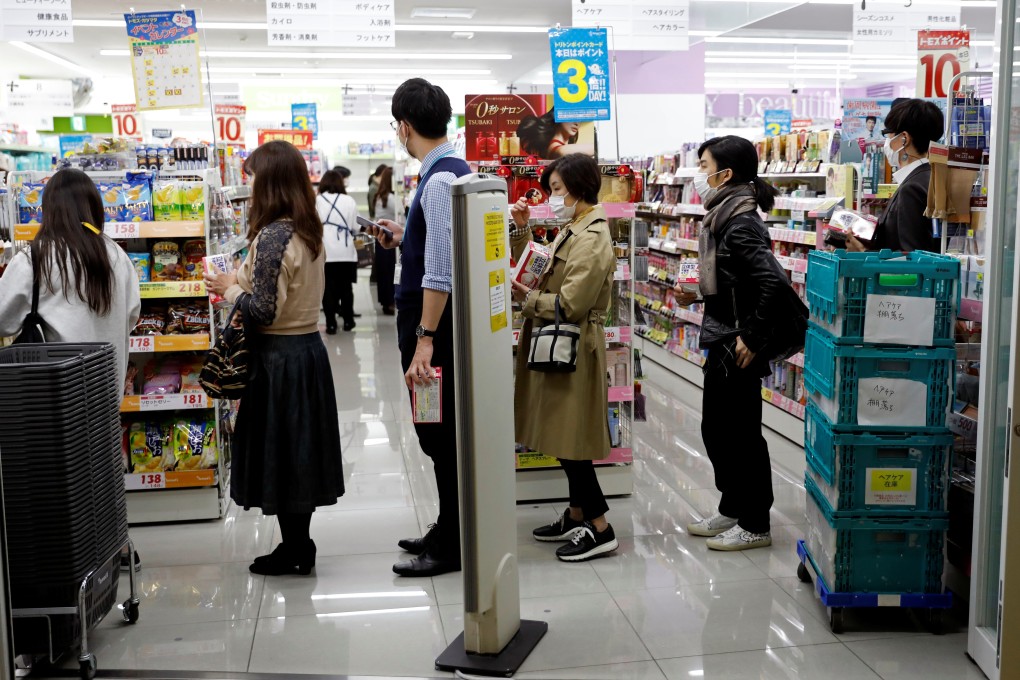Coronavirus: Japan braced for wider outbreak but no state of emergency for now
- A state of emergency would allow governors in hard-hit regions to take steps such as asking people to stay home, closing public facilities and cancelling events
- A pandemic task force has been established, following a sharp jump in coronavirus cases in Tokyo, making the capital the epicentre of Japan’s outbreak

Japan had 1,314 domestic cases of coronavirus as of Thursday afternoon, separate from 712 from a cruise ship that was moored near Tokyo last month, broadcaster NHK reported. There have been 45 domestic deaths and 10 from the cruise ship.
“I told Prime Minister Abe there is a high risk of coronavirus spreading widely,” Health Minister Katsunobu Kato told reporters after meeting Shinzo Abe and Economy Minister Yasutoshi Nishimura.
Nishimura said Abe told him to “proceed swiftly with setting up the government task force” based on Kato’s report. But the government was not considering declaring a state of emergency at the moment, Nishimura said.
Under a law revised this month to cover the coronavirus, the prime minister can declare a state of emergency if the disease poses a “grave danger” to lives and if its rapid spread threatens serious economic damage.
Japan was teetering on the brink of recession before the virus struck and the epidemic has increased that risk.